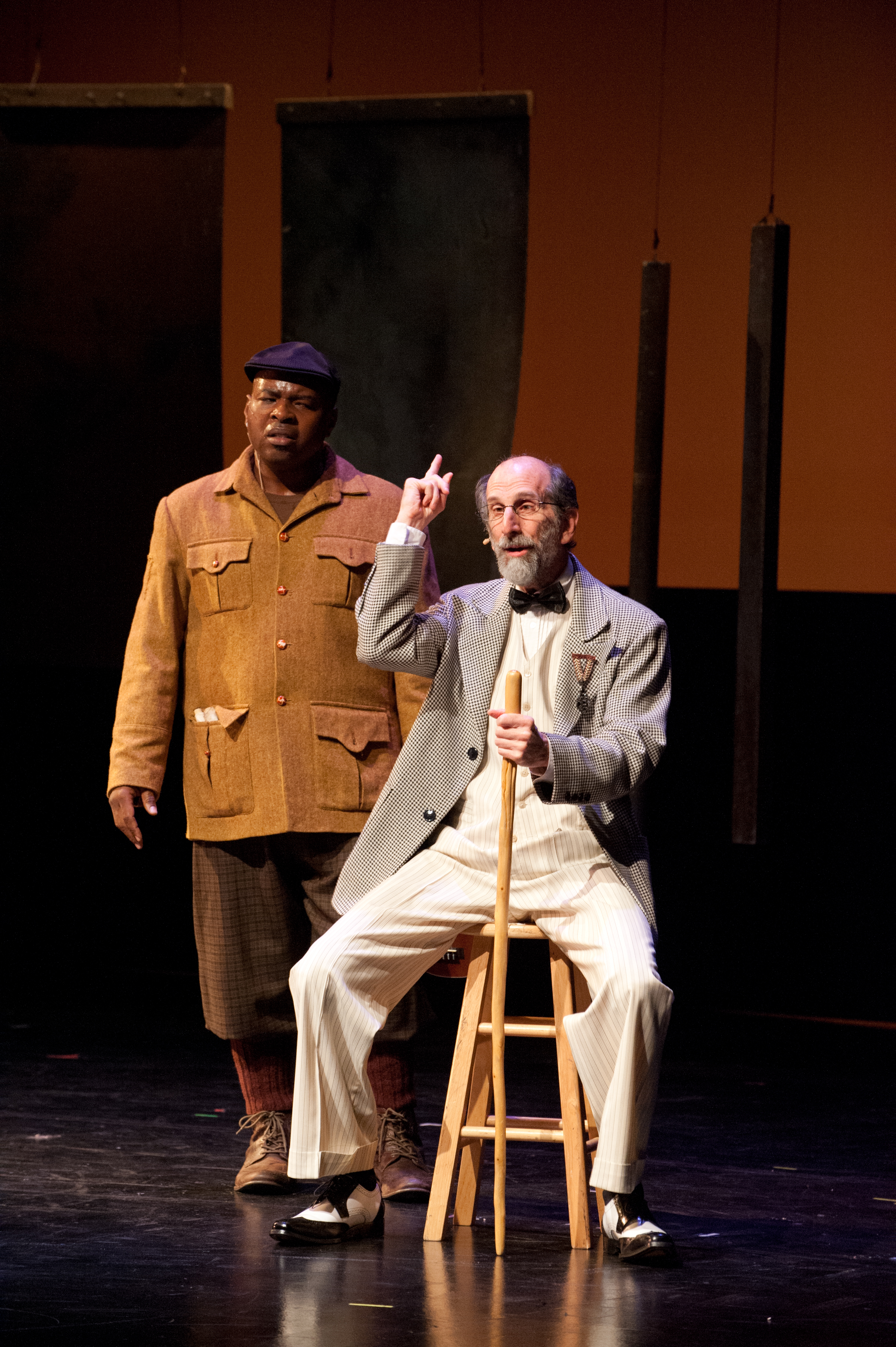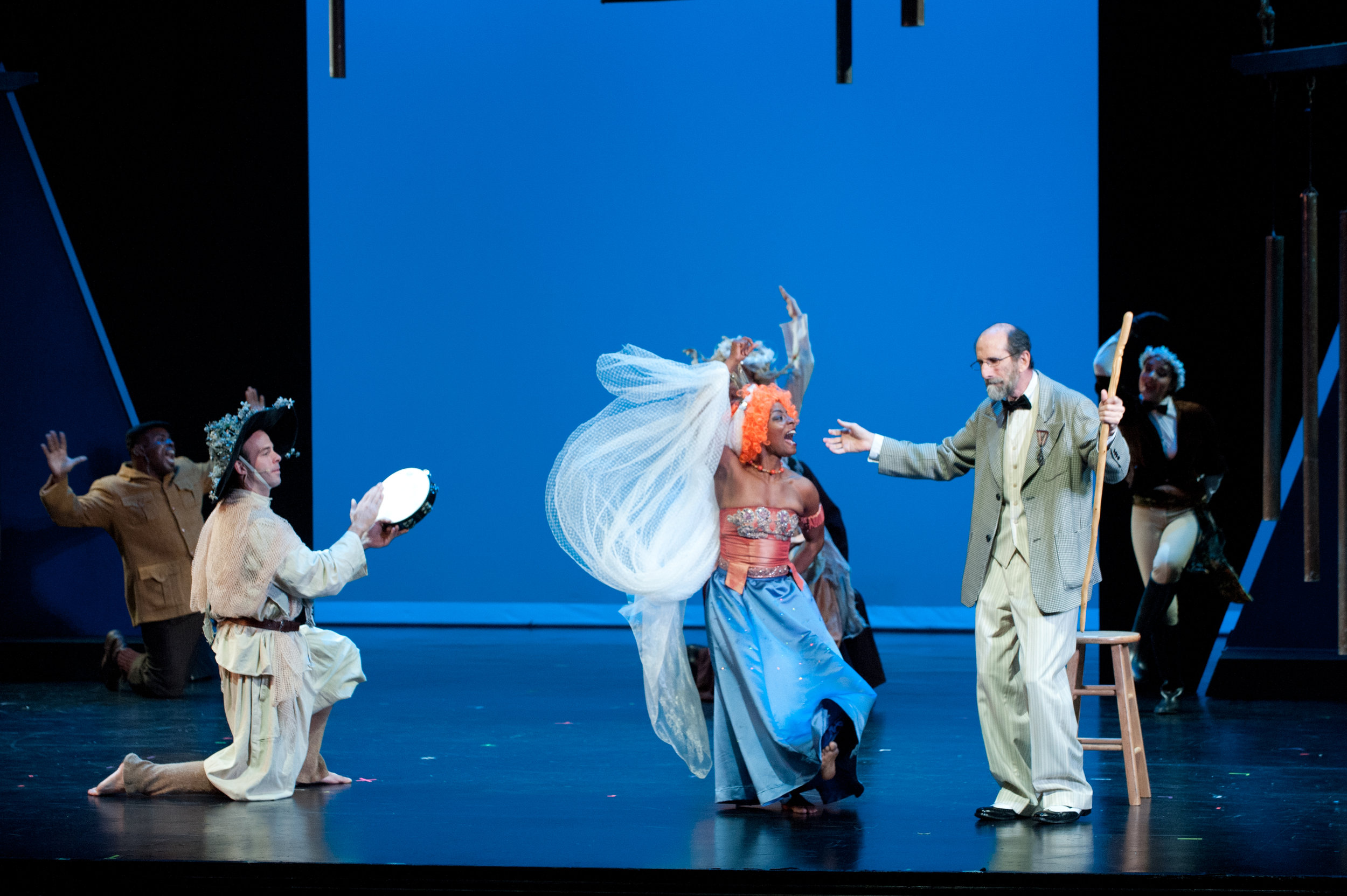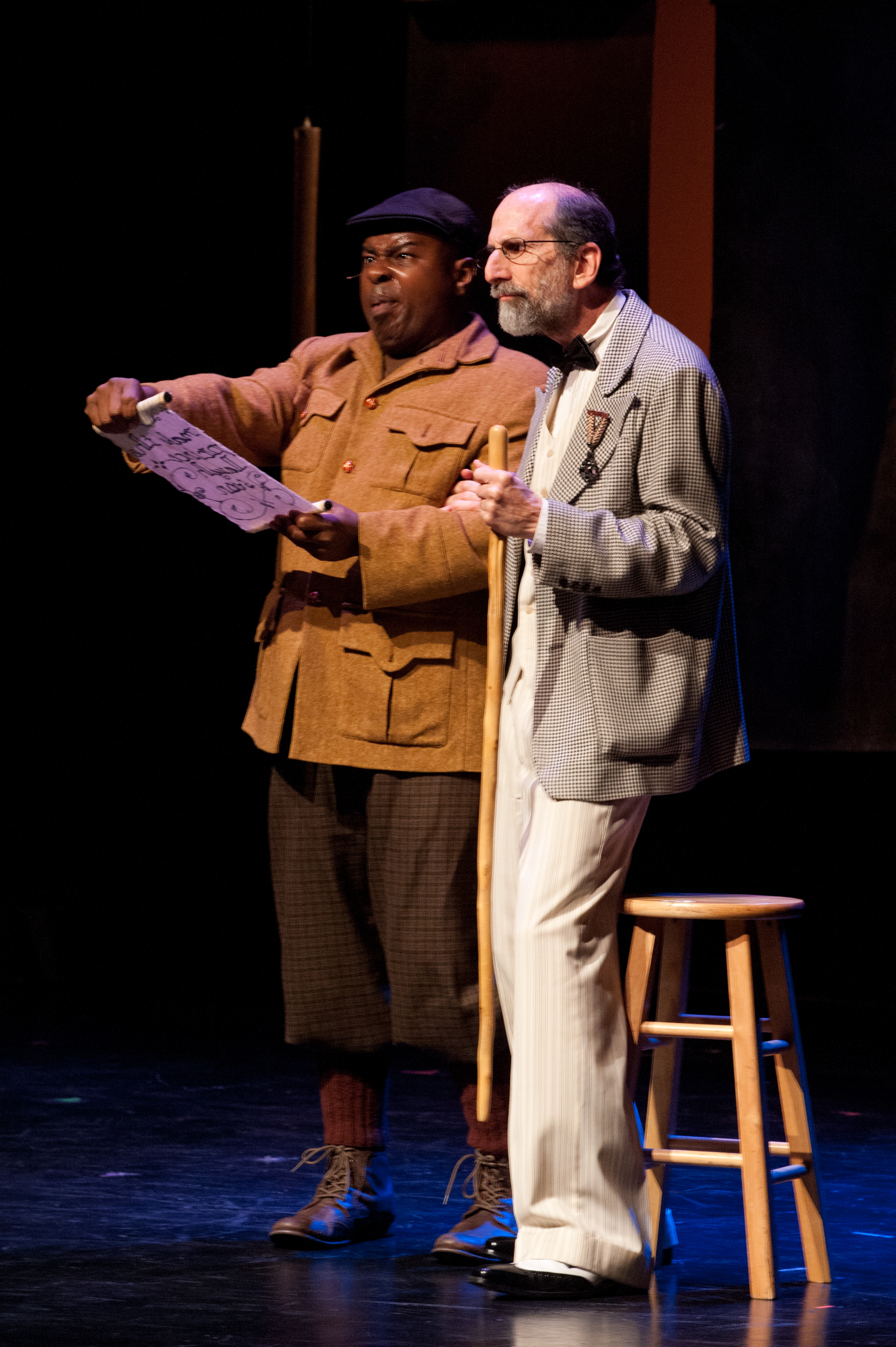 All Photographs by Daniel Bock
All Photographs by Daniel Bock
I’m again playing King Silvio in The Love of Three Oranges, a curious little play that is based on an old Italian Commedia scenario by Carlo Gozzi. (Commedia dell'arte was a popular form of theatre in 16-18th Century Europe, performed on outdoor stages and based on comic sketches and stock characters – a sort of old world Saturday Night Live.) Three Oranges was turned into an opera by Prokofiev, which premiered in Chicago in 1921. And now the play has migrated to Miami.
When I was first offered to do this show several years ago, director Stephanie asked me if I would like to play the King as blind. Being proud to pretend to play sighted characters, my knee-jerk reaction was to play him as written (old but sighted). Then I got to thinking about this opportunity. And why not? I’m a blind guy.
This begs the old conflict I’ve had for most of my acting life. Since the vast majority of the characters written into plays, movies and TV are not disabled, my mind-set has always been to audition ‘sighted.’ Actually, when I first started going blind, I used to try and hide the fact that I could barely see. It only occurred to me later in my career that many nondescript characters could easily be in a wheelchair, deaf or blind – provided of course that the director had the imagination to picture it. When I auditioned for the role of Teckie, a forensic analyst, in the movie The Specialist, the director liked the idea of turning the character into a blind audio wonk. I was hired and played alongside James Woods. My first guide dog, Recon, was also framed in the scene.
Of course, one has to land the role initially…you’ve gotta be an actor first and then a blind guy somewhere around number 6 or 7 down the list.
I was recently contacted by a deaf actor who was discouraged with the business and asked me about obstacles that I had encountered as a disabled performer. I told him that the biggest obstacle I had faced was people. Casting folks will prejudge you, or will wonder “why the agent sent a deaf guy,” or just simply lack the ability to imagine the extra layer of character that a disabled actor might bring to the role. However, I suggested that he had the benefit of low expectation. By nature, when disability walks (or rolls) through the casting door, expectations of those in the room will naturally drop. Getting in the door can be tricky, but once you do and show them something special, the element of surprise kicks in and they get interested real fast. The message: be an actor first. Study and hone your talent so that you're ready to kick butt when that audition comes up. I also reminded him that all actors, disabled or non-disabled, experience rejection on a routine basis. That’s the biz. Besides, rejection is one step closer to a gig.
So now, as an older actor, I’m happy to ease into a blind character role.
I’m the blind elderly monarch of Lugubria and my only son and heir to the throne, Prince Tartaglia, is dying of terminal hypochondria. If he is not cured, my crown will pass to my evil niece, Clarice. A pair of mystical doctors suggest a cure: “Make the Prince laugh soon.” My servant and adviser, Pantalone, helps me with a plan to hire the funniest man in the kingdom, Truffaldino, to make the Prince laugh. Pantalone leads me back and forth as we work out the details, and with a “5-6-7-8,” we dance off singing, “The Prince is going to live forever, forever, forever, forever more!”
Truffaldino is successful in making Tartaglia laugh, but the bad witch, Fata Morgana, creates another obstacle. She puts a curse on Tartaglia which causes him to search across the world for three Oranges, which are seemingly impossible to gather up. It turns out that one of the Oranges is actually a Princess, Ninetta, who was previously turned into an Orange by that pesky Fata Morgana. I bring Smeraldina, Fata’s servant, and Clarice to trial, both implicated in attempting to prevent the Prince from ascending to the throne. In order to preside over the formalities, I must move alone from up stage right to a table down stage center. To avoid taking a nasty spill onto the lady in the first row, Princess Ninetta takes my hand and points it at the corner of the table as she explains to me her plight and her desire to marry the Prince. When she moves away from me, I orient myself to my hand and make the dramatic cross down to the table. After exposing the bad guys, I announce that it’s time to celebrate a Royal wedding and everybody dances a wild tarantella. I step with the cast in a line for the first part of the dance. Then Clarice turns and aims me at my Royal footstool and I skip down to it and continue stepping lively.
Blind or not, it’s good to be King.




